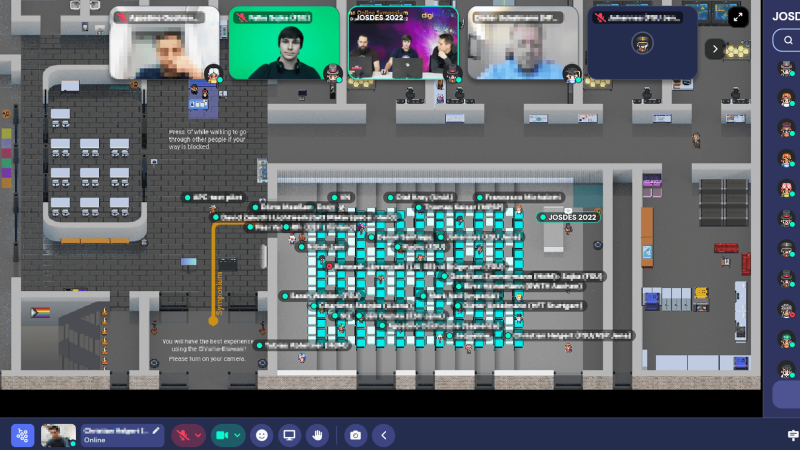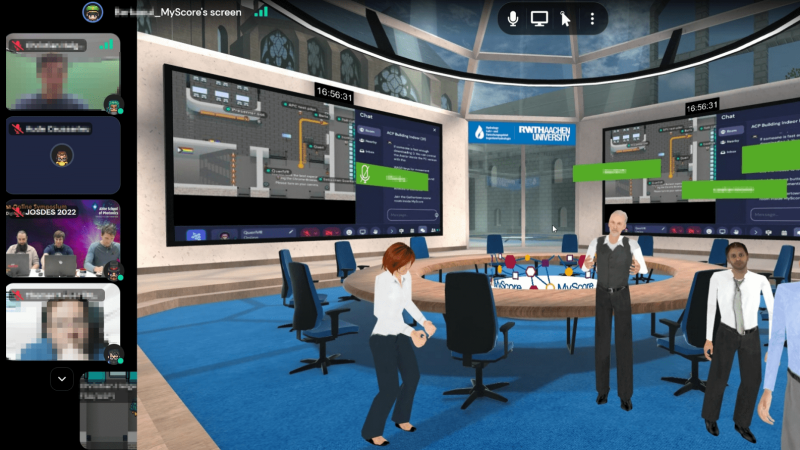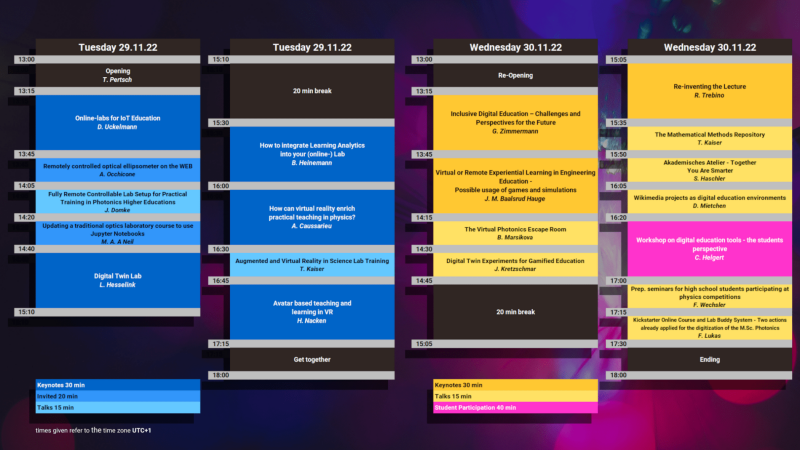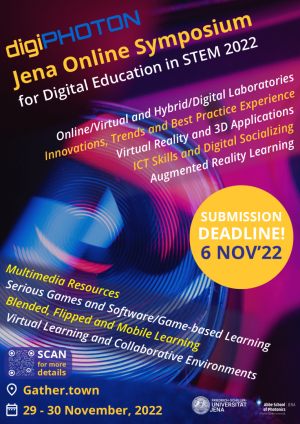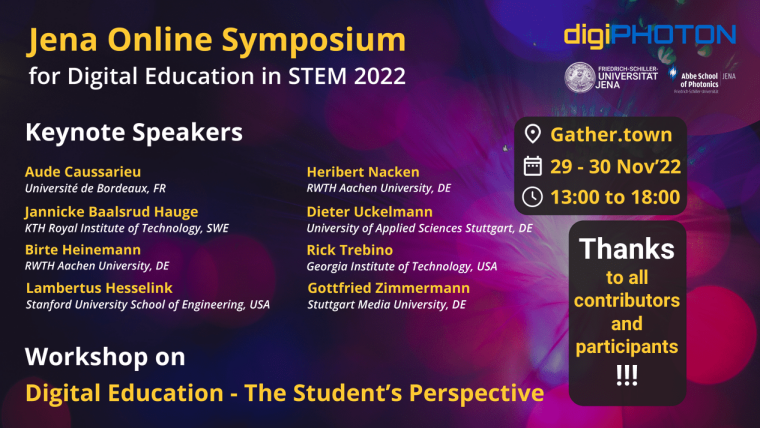
We met in digital space!
Screenshot JOSDES 2022
Image: PrivateYou can find a picture gallery of the event hereExternal link.
Scope of the symposium
The first Jena Online Symposium for Digital Education in STEM 2022 was held on November 29-30, 2022 (Tuesday and Wednesday) in a unique digital setting called ASP-Gather.town, a virtual twin of the research and teaching building Abbe Center of Photonics at the Friedrich Schiller University in Jena, Germany.
- Participation at the symposium was free of charge.
- The language of the symposium was English.
Screenshot JOSDES 2022
Image: PrivateThe symposium brought together leading experts and pioneers in digital education in science, technology, engineering and mathematics (STEM) from all over the world. Together with them, and with a special focus on digital photonics education, we discussed, demonstrated, and learned about new developments and teaching approaches in these areas.
In a unique, digital, interactive university environment, the Jena Online Symposium for Digital Education in STEM offered, among others, keynote talks, and VR landscape excursions.
Keynote speakers
- Aude CAUSSARIAU, Freelancing didact, France
- Jannicke Baalsrud HAUGE, KTH Royal Institute of Technology, Sweden
- Birte HEINEMANN, RWTH Aachen University
- Lambertus HESSELINK, Stanford University School of Engineering, California, USA
- Heribert NACKEN, RWTH Aachen University
- Dieter UCKELMANN, University of Applied Sciences, Stuttgart
- Rick TREBINO, Georgia Institute of Technology, Atlanta, USA
- Gottfried ZIMMERMANN, Stuttgart Media University
More information on our keynotes are available here.
Proceedings with timeline and abstracts
Background of the symposium
JOSDES 2022
Graphic: Subham AdakIn the past two years, the international academic community has encountered dramatic challenges in teaching students and young researchers. As a result, we are now witnessing a fascinating onset of new, mostly digitally based ideas, concepts, toolsets and technologies that may even improve how we deliver scientific and technological knowledge to our students. These new developments promise to contribute to an ongoing (r)evolution in digital education in science and technology.
At the Friedrich Schiller University Jena, our international Abbe School of Photonics has committed substantial efforts to the idea that physical mobility for high-quality education may be joined and complemented by intelligent mobility – a mixture of physical and digital presence. At our school, the digiPHOTON team is highly committed to developing new ideas to implement remote/hybrid laboratories in virtual and augmented reality into the regular curriculum of our Master of Science in Photonics program (M.Sc. Photonics) and to put them immediately into practice in teaching currently enrolled students.
The digiPHOTON project is funded by the German Academic Exchange Service (DAADExternal link) within its funding scheme Internationale Programme Digital (IP Digital) 2020-2022.External link
